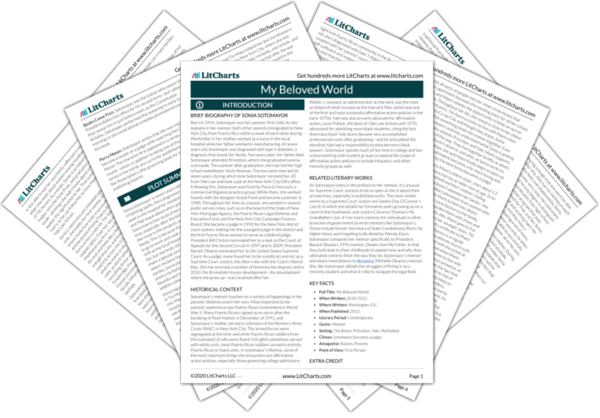The explanation of why Papi never attends college in San Juan suggests that even though Mami loves the family she marries into, it’s not necessarily all positive—Abuelita’s love, though fulfilling and uplifting when directed at her grandchildren, held Papi back as a young person. Family, this suggests, isn’t always supportive in the way that Sonia suggests it should be. Despite this, though, Papi still does everything in his power to support Mami through their early married years and life as parents.
